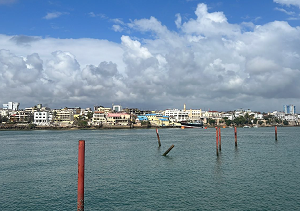UNODC Eastern Africa News and Stories
You are here: Home / News
Kenyan authorities to secure natural resources in coast region from corruption
 8 December 2022, Nairobi - With corruption a known factor in crimes affecting the environment, and a documented decrease in global biodiversity, responding to potential corruption risks in the wildlife, forest, and fisheries sectors has increasing importance.
8 December 2022, Nairobi - With corruption a known factor in crimes affecting the environment, and a documented decrease in global biodiversity, responding to potential corruption risks in the wildlife, forest, and fisheries sectors has increasing importance.
As Kenya marks International Anti-Corruption Day 2022 (9 December), UNODC is acknowledging how Kenya has been championing a collaborative inter-agency approach this year to strengthen the integrity of its national institutions, prevent corruption, and ensure their natural resources are protected.
UNODC supports countries to undertake corruption risk assessments and risk mitigation plans to address identified problem areas. The process ensures agencies identify risk areas where corruption instances are likely to occur, and address those issues before illegal acts take place.
It is a preventative approach that builds agency resiliency and secures trust in institutions through integrity and transparency.
The UNODC Environment Team has supported national authorities to join on the coast of Kenya for three inter-agency dialogues throughout 2022. The dialogues were each attended by over 55 representatives and resulted in the endorsement of the Coast Inter-agency Corruption Risk Mitigation Plan.
 The plan highlights core areas of concern and the recommended mitigation strategies to be undertaken. The inter-agency framework allows for agency experience from the various sectors of wildlife, forest, fisheries and marine, to work together to overcome converging challenges.
The plan highlights core areas of concern and the recommended mitigation strategies to be undertaken. The inter-agency framework allows for agency experience from the various sectors of wildlife, forest, fisheries and marine, to work together to overcome converging challenges.
“I commend and encourage inter-agency dialogue and cooperation in order to jointly combat our common menace [corruption]” the Kilifi County Commissioner, Mr. Kutswa Olaka, said.
In October, Kenyan national authorities, together with County Commissioners from the coastal region, developed an inter-agency syllabus for implementing capacity-building measures across key areas of concern, focused on enforcement and the prevention of corruption.
The collaborative process allowed for all agencies' distinctive expertise to inform the syllabus, ensuring certain challenges in the various jurisdictions would be addressed by the appropriate authority, laws, and tools.
 The dialogues have already resulted in inter-agency enforcement activities being undertaken to protect Kenya’s coast. Kenya Wildlife Service (KWS) Deputy Director of Security, Ms. Nancy Kabete, reminded the group of the importance of allowing expertise to guide inter-agency management of future cases to have real impact.
The dialogues have already resulted in inter-agency enforcement activities being undertaken to protect Kenya’s coast. Kenya Wildlife Service (KWS) Deputy Director of Security, Ms. Nancy Kabete, reminded the group of the importance of allowing expertise to guide inter-agency management of future cases to have real impact.
“[It is not about a specific institution taking the lead role. It is inter-agency cooperation]. Therefore, we need to figure out the following question: Using their own people on the ground, how can the County Commissioners and their administratives identify an entity to go an extra mile to ensure we see results?” Ms Kabete said.
Preventing, addressing, and effectively responding to corruption across environmental sectors cannot be accomplished alone.
Safeguarding Kenya’s coast is an ongoing process, and the willingness and proactive action of the agencies involved gives room for further inter-agency collaboration to better protect Kenya’s forests, wildlife, and marine species.
More information
- Social media on the workshops can be found here: Dialogue 1 Dialogue 2 Dialogue 3.
- Please email Lauren.friedman@un.org